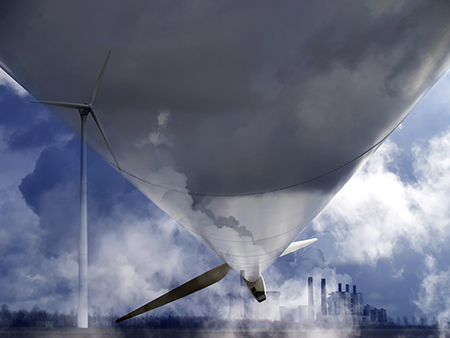
“Two news items in the last months should have alerted every CEO or senior manager of an energy utility company, every politician with responsibility for the economy of his country and every leader of a large manufacturer.
“The first item was the result of a popular vote in Hamburg, where citizens decided, against the wish of their local government, to buy back the energy grids of their city, mostly from large European utility companies. The second item was an article in the German magazine Der Spiegel, which portrayed the slow demise of the once mighty energy utility RWE which, after years of failed investments, a market share in private households which dwindles due to community energy networks and self-generation, and the phasing out of the once immensely profitable nuclear generation, now barely survives having to service a staggering 35 billion Euros in accumulated debt.
Germany
“Germany is without doubt the most successful economy in Europe, and it is one of the most successful economies globally. Its unique blend of dual education, high-value manufacturing in cars, planes, machinery and chemicals, together with its extremely successful Mittelstand (small to medium size companies which are world leaders in vital niche markets) makes it also highly resilient to crisis.
“To understand, where Germany is today, it is instructive to sketch her path in the last thirty years. Thirty years ago, Central Europe was a different continent. Political discourse was still determined by the Cold War paradigms, national economies were focussed on heavy industries and vanity projects in war technology, and information was restricted to print media and government owned radio and television.
“The second event was growing evidence of the destruction of the German forest by acid rain from heavy industry and power stations. In 1983, it was estimated that 34% of the (then West-) German forest was damaged by acid rain. This fact, and the realization that trees were vital for CO2 regeneration, quickly became a focus in national media.
“In combination, these two events created a powerful political force, across the whole traditional spectrum, which was capable of overturning the country’s consensus on almost anything from international relations to educational policy to economic relations.
“It might have taken more than fifteen years (until 1998) for the German Green party to become member of a national government, but their thinking influenced a whole generation, now in its forties and fifties, which is largely responsible for the dramatic change in the German energy infrastructure over the last two decades.
“Today, energy is perceived by most people as a commodity, which is provided by large multinationals and readily available on demand.
“The limiting factor in its use is the cost, and it is largely seen as value neutral, which means that using more or less of it does not correspond to an improving or deteriorating quality of life in general. This means that every single person will adjust his consumption according to balancing benefits and costs individually. It is quite clear, then, that interfering in this balance will be seen differently by different parts of the population.
“Both of these groups neglect two fundamental facts about energy: one, that limited supplies will always increase prices so every attempt at reducing costs within existing supply chains and with increasing demand is futile, and two, that increased spending on energy will nearly always have a negative effect on an economy locally as it leads to capital exports and thus reduces available funds for investment.
“Additionally, using existing hydrocarbon reservoirs to the full extent will probably mean the extinction of life on earth on a massive scale which, in turn, makes human survival questionable. A rational debate on these issues is long overdue and it should be framed in terms of economic and ecological value generation. As will be seen, such a debate will necessarily lead to the conclusion that large international utilities, with their outdated business model, are doomed to fail. The key reason for this failure is that economies of scale do not work for renewable energy. Instead, future energy networks will most likely depend on community based and fully integrated networks.
“Model towns and villages such as Kempten and Wildpoldsried in Southern Germany provide a blueprint how this works in practice. Fifteen years ago Wildpoldsried started to transform its energy production. The community financed energy consulting and put together a team for bulk sourcing solar power generation on individual dwellings. The uptake to date involves about 20% of all buildings, generating close to 4MW peak electricity.
“In addition, investment pools were set up to finance the construction of five individual wind turbines, capable of generating 15MW. A further development involved biogas generation from farm waste material, which feeds combined heat and power generation. The total energy generation at present is, over one annual cycle, 220% of electricity demand.
Energy communities
However, small-scale production on individual properties, which removes demand from the market, is bad for utilities, because it reduces their consumer base, and it cannot be incorporated into a utility business model, because it cannot be scaled up, as properties are owned by different individuals. There is then no incentive for any utility to invest in small scale renewables.
“But this is exactly the domain where the renewable energy supply is used most efficiently. And here is also the main obstacle for the energy revolution: the consumers of renewable technology need to organise themselves to use consumer power to bargain prices in renewable energy technology. Similarly, to reduce losses in generation and distribution of heat, local heat networks need to go beyond a minimum size, which is only possible if individuals form larger interest groups.
“So, strange as this may sound, at the heart of the energy revolution lies in fact a political decision by individuals: the decision to form energy communities.”